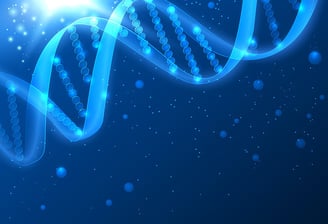Menopause Clinic


Neurogenics Hormone Wellness Clinic
Cutting Edge Research For Making Smart Decisions


About Menopause
Menopause marks the end of menstrual cycles, typically occurring around age 50, but its journey has three stages. Perimenopause precedes full menopause, with symptoms like irregular periods, hot flashes, and mood swings due to fluctuating hormones. Full menopause is confirmed after 12 consecutive months without menstruation, signaling the ovaries have ceased hormone production. Post-menopause follows, with symptoms like vaginal dryness or osteoporosis risk persisting as estrogen levels remain low. Holistic care supports well-being through all stages.
Symptoms Of Menopause
Three Different Classifications
Peri Menopause
The main symptoms of perimenopause, the transition leading up to menopause, include:
Irregular menstrual cycles (shorter, longer, or missed periods).
Hot flashes and night sweats.
Mood swings, irritability, or increased anxiety.
Sleep disturbances, such as insomnia or waking frequently.
Vaginal dryness and discomfort during intercourse.
Decreased libido (reduced sexual desire).
Fatigue or low energy levels.
Memory issues or difficulty concentrating ("brain fog").
Weight gain, particularly around the abdomen.
Breast tenderness or changes.
These symptoms are caused by fluctuating estrogen and progesterone levels.


Full Menopause
The main symptoms of full menopause occur when a person has gone 12 consecutive months without a menstrual period, marking the end of ovarian hormone production. Common symptoms include:
Hot flashes and night sweats.
Vaginal dryness and discomfort during intercourse.
Mood changes, such as irritability, anxiety, or depression.
Sleep disturbances, including insomnia.
Reduced libido (loss of sexual desire).
Memory problems or difficulty concentrating ("brain fog").
Fatigue or low energy levels.
Bone density loss, increasing osteoporosis risk.
Thinning hair or skin changes.
Symptoms vary in intensity and may overlap with the postmenopausal stage.
The main symptoms of post-menopause, occurring after menopause is confirmed (12 months without periods), result from prolonged low estrogen levels and include:
Vaginal dryness, leading to discomfort during intercourse.
Hot flashes and night sweats, though they may lessen over time.
Increased risk of osteoporosis, causing weak or brittle bones.
Urinary symptoms, like frequent infections or incontinence.
Weight gain, especially around the abdomen.
Cardiovascular changes, raising heart disease risk.
Hair thinning and skin dryness.
Mood changes, such as anxiety or depression.
These symptoms can vary in severity and duration.
Post Menopause




Potential Causes Of Menopausal Issues
Menopausal issues arise primarily from declining estrogen and progesterone levels, disrupting hormonal balance. This affects various systems, causing hot flashes, mood swings, and bone density loss. Genetic predisposition, lifestyle factors like stress, poor diet, and smoking can exacerbate symptoms. Chronic conditions such as thyroid dysfunction or autoimmune diseases may worsen menopause-related changes. Environmental factors, including exposure to endocrine-disrupting chemicals, and lack of physical activity also contribute. Holistic approaches address these causes to ease menopausal transitions.
How We Can Help
With Menopause
At Body Mind Medical Hormone Clinic, we use a functional medicine approach to address menopausal issues by identifying root causes like adrenal dysfunction, blood sugar imbalances, and nutrient deficiencies. Through advanced testing and personalised care plans, including nutrition, lifestyle changes, and targeted supplementation, we help restore thyroid function and optimise health.
lifestyle analysis
the functional medicine approach
the hormone wellness profile
full thyroid blood chemistry profile
the discovery consultation
The Functional Medicine Approach To Menopause


Functional medicine integrates cutting-edge research to empower patients and practitioners in making informed, effective health decisions. By combining advances in genetics, biochemistry, and environmental health with personalised care, functional medicine goes beyond symptom management to address underlying causes. This approach leverages the latest research in nutrition, microbiome health, and hormone balance, enabling smarter, data-driven decisions about treatment and lifestyle modifications.
Functional medicine's use of advanced diagnostic tools helps detect early warning signs of disease and craft targeted interventions, creating tailored solutions for lasting health. In this way, it merges science and strategy to support optimal, individualised healthcare outcomes
Lifestyle and Hypothyroidism


Lifestyle plays a significant role in menopause experiences. Poor diet, high in sugar or processed foods, exacerbates symptoms like weight gain and fatigue, while balanced nutrition supports hormonal health. Regular exercise strengthens bones, reduces hot flashes, and improves mood.
Chronic stress worsens symptoms by increasing cortisol, affecting sleep and mood. Smoking can accelerate menopause onset and intensify symptoms like hot flashes. Adequate hydration, sleep, and stress management help manage menopausal changes, enhancing overall well-being.
Hormone Wellness Profile


A whole endocrine system analysis identifies interrelated issues across glands like the thyroid, adrenals, and pancreas, uncovering root causes of hypothyroidism and enabling targeted, effective treatment for optimal hormonal balance.
A Whole Body Symptoms Analysis
Our symptoms analysis covers ...
thyroid symptoms
adrenal symptoms
blood sugar symptoms
gut symptoms
liver and gall bladder symptoms
Plus lifestyle issues associated with
quality of sleep
quality of nutrition
exposures to stress
IN THIS WAY, USING THIS APPROACH WE CAN LEARN THE WHOLE BODY FACTORS AND LIFESTYLE FACTORS THAT ARE INFLUENCING HORMONAL BALANCE
YOU CAN THEN DECIDE ON THE BEST COURSE OF ACTION TO RECOVER OPTIMAL HORMONE BALANCE THROUGH MAKING INFORMED DECISIONS.
ASSESS YOUR SYMPTOMS
KNOW YOUR PRIORITIES
DECIDE ON BEST COURSE OF ACTION TO RECOVER OPTIMAL HORMONE BALANCE
We Are Cutting Edge Research
Functional medicine integrates cutting-edge research to empower patients and practitioners in making informed, effective health decisions. By combining advances in genetics, biochemistry, and environmental health with personalised care, functional medicine goes beyond symptom management to address underlying causes. This approach leverages the latest research in nutrition, microbiome health, and hormone balance, enabling smarter, data-driven decisions about treatment and lifestyle modifications.
Functional medicine's use of advanced diagnostic tools helps detect early warning signs of disease and craft targeted interventions, creating tailored solutions for lasting health. In this way, it merges science and strategy to support optimal, individualised healthcare outcomes.
For Making Smart Decisions
The Discovery Consultation




Symptoms Analysis
Medical History
past health analysis
past blood test analysis
medication history
hormone profile
lifestyle analysis
stress analysis
nutritional analysis




Treatment Planning
If available
Current Lab Test Analysis
blood chemistry
saliva tests
urine tests
stool tests
nutritional analysis
£85 | 60 minutes
Location : Stoke On Trent ( in person OR online )
personalised nutrition
personalised nutritional medicines
personalised herbal medicines
Get in touch


Biddulph Address
43 Woodhouse Lane, Biddulph
Staffs ST8 7DR
Contacts
Alan Lee
07814 528087
alan@bodymindmedical.co.uk
